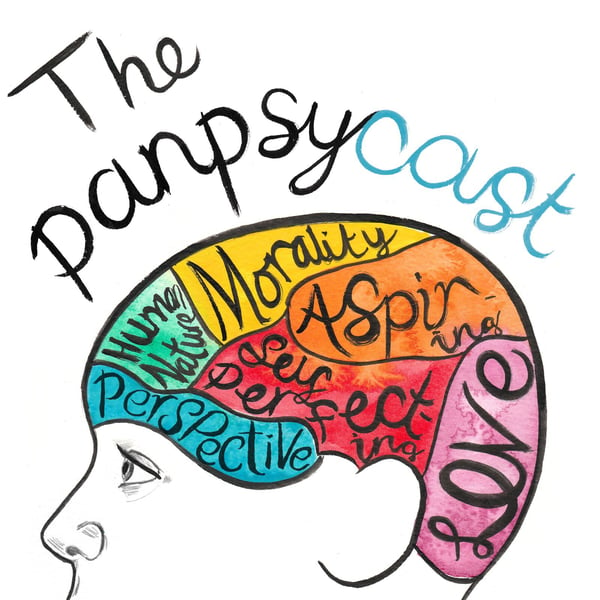Episode 36, The Daniel Dennett Interview (Part II - Philosophy of Mind)
The Panpsycast Philosophy Podcast
Jack Symes | Andrew Horton, Oliver Marley, and Rose de Castellane
4.8 • 604 Ratings
🗓️ 22 April 2018
⏱️ 46 minutes
🧾️ Download transcript
Summary
Our Patreon page: www.patreon.com/panpsycast.
Everything you could need, including links to all of Daniel C. Dennett’s work, can be found at www.thepanpsycast.com! Please tweet us your thoughts at www.twitter.com/thepanpsycast.
In the words of A. C. Grayling, Professor "Daniel C. Dennett is perhaps the most distinguished philosopher in the world".
In a 2013 study by Gottlieb Duttweiler Institute, alongside philosophers Slavoj Zizek and Peter Singer, Daniel Dennett was ranked amongst the top 5 global thought leaders.
Currently the co-director of the Center for Cognitive Studies and the Austin B. Fletcher Professor of Philosophy at Tufts University, Daniel is best known for his contributions to cognitive science, philosophy of mind and philosophy of religion. His works Consciousness Explained, Darwin’s Dangerous Idea, Breaking the Spell and his latest work, From Bacteria to Bach and Back have had an immense impact in the worlds of philosophy and science.
For many, Daniel Dennett, known as ‘one of the four horsemen of new atheism’, is a household name, celebrated as a man who has explained away the hard problem of consciousness, religion, and fundamental questions surrounding free-will.
Transcript
Click on a timestamp to play from that location
| 0:00.0 | Part 2, Philosophy of Mind. |
| 0:17.0 | Listeners are encouraged to revisit episodes 319 and 25 for an introduction to philosophy of mind if you've never looked at it before. |
| 0:25.7 | Okay, Dan, so we'll start off with the first question. |
| 0:30.6 | Well, since Husserl, there's been a kind of method of inquiry that was introduced to philosophy, |
| 0:36.4 | and this is called the phenomenological method, |
| 0:39.1 | or what you've called, as you've called it, the auto phenomenological method. And kind of simply put, |
| 0:44.8 | this is the idea that we kind of introspect our experiences and kind of try to describe them in, |
| 0:50.3 | you know, great detail. And from this, we can kind of draw certain metaphysical conclusions. |
| 0:57.0 | You, however, have suggested another method, and you give it the rather ominous title. |
| 1:03.2 | I think you claim yourself of heterophenomenology. |
| 1:06.9 | Could you explain for our listeners what heterophenomenology is is and why is it supposed to be advantageous to auto |
| 1:15.1 | phenomenology? |
| 1:18.0 | Auto phenomenology is phenomenology from the first person point of view where you just sit there and |
| 1:24.3 | introspect. |
| 1:26.0 | Heterophenomenology is when you get others to introspect or to participate in experiments, |
| 1:34.4 | which you discuss with them and ask them lots of questions about and measure all kinds of things, |
| 1:41.9 | and get them to express themselves by pressing buttons or saying things, |
| 1:47.2 | acting in various ways. |
| 1:49.6 | And what you glean from this is their account of what it's like to be them. |
| 1:56.1 | And I claim that, first of all, you can't do auto-phenominalology scientifically. |
| 2:02.6 | This is, this is, the science has to involve data that can be objectively verified. |
| 2:11.6 | But that doesn't mean it rules out data about consciousness. |
... |
Please login to see the full transcript.
Disclaimer: The podcast and artwork embedded on this page are from Jack Symes | Andrew Horton, Oliver Marley, and Rose de Castellane, and are the property of its owner and not affiliated with or endorsed by Tapesearch.
Generated transcripts are the property of Jack Symes | Andrew Horton, Oliver Marley, and Rose de Castellane and are distributed freely under the Fair Use doctrine. Transcripts generated by Tapesearch are not guaranteed to be accurate.
Copyright © Tapesearch 2025.

